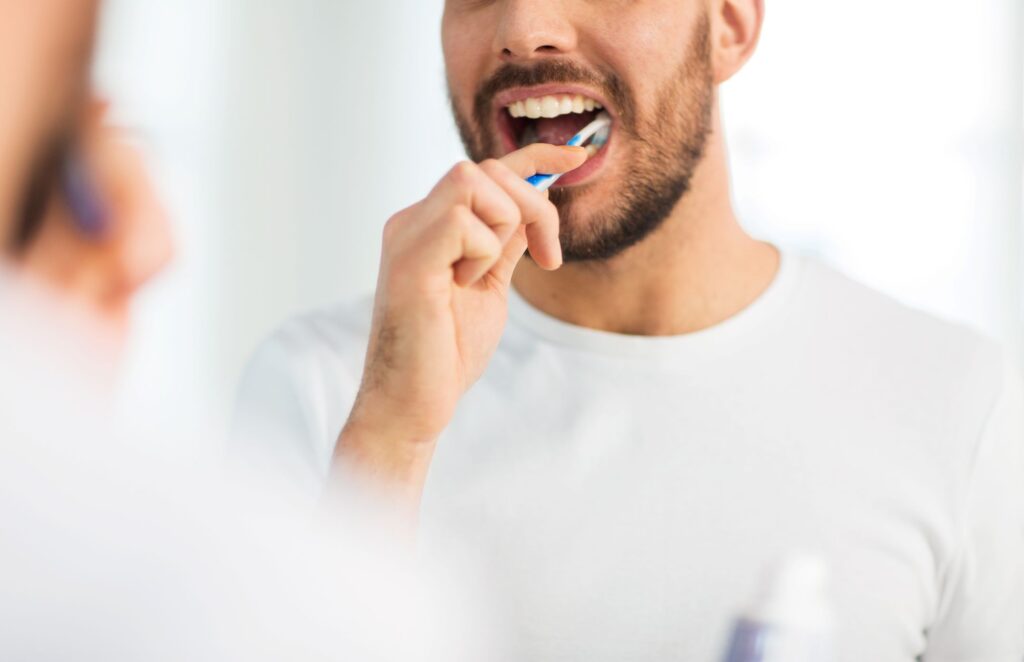
Are you looking for a reliable and long-lasting solution for tooth loss? If so, you might be a good candidate for dental implants. Many experts consider this the ideal way to replace missing teeth because of their unique placement in your jawbone, which provides unique advantages over alternatives, such as dentures and bridges.
However, that doesn’t mean they’re invincible. There are some daily habits you might have that could potentially harm your new teeth. Continue reading to learn more about 3 lifestyle changes you can make to support them instead!
Change #1: Implement a Routine
Even if you lose all your natural teeth, it’s still essential to continue cleaning your mouth consistently. Bacteria can still penetrate your gums or jawbone and cause issues like disease or decay that can potentially result in additional tooth loss or implant failure. That means you must continue to cleanse twice daily to keep them at bay.
If you don’t already, you should brush and floss your prosthetic and any remaining teeth both morning and night to remove problematic germs and plaque. Remember to take care when flossing your restoration that you don’t push so deeply into the pocket of your gums that you break its protective seal.
Change #2: Increase Vitamin D Levels
Did you know that patients with a vitamin D deficiency are significantly more likely to experience implant failure? These replacement teeth are the only ones that involve surgically placing a titanium rod into your jaw for added strength and stability. It can take three to six or more months to recover, though, because your mouth must generate enough new bone growth to fuse with the biocompatible material.
Vitamin D is an essential ingredient that helps your body absorb nutrients, such as calcium and phosphorus, from your foods to build strong teeth and bones. Without enough of it in your system, you’re less likely to complete the process of osseointegration that’s required for implant success.
Change #2: Quit Smoking
Unfortunately, patients who smoke cigarettes, vape, or use tobacco products are about two to three times more likely to experience implant failure than those who don’t. This is because these products contain nicotine, which functions as a vasoconstrictor. It reduces your blood’s oxygen levels and flow, rendering your body unable to deliver essential nutrients to your mouth to heal effectively.
Furthermore, it also suppresses your immune system, increasing the likelihood of developing infections or diseases, such as peri-implantitis, the leading cause of failure.
If you’re still unsure whether you’re a good candidate for this treatment, you can find out by scheduling a consultation with your dentist!
Meet the Author
Dr. Alejandro Lamas is passionate about helping patients in Plantation build and maintain happy, healthy smiles. He earned his Doctor of Dental Medicine from Tufts University School of Dental Medicine before returning to Florida to serve his local community. Today, he provides a comprehensive menu of services to meet all your needs under one roof, including replacement teeth. He has the training and state-of-the-art equipment to place and restore dental implants in the office for your convenience. You can request an appointment on the website or by calling (754) 701-0386.
